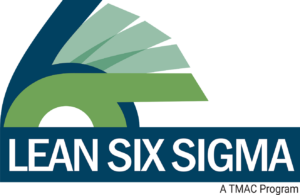The Move Online for LSS
Since the start of 2020 TMAC staff have been very busy with Lean Six Sigma work including four different classes (two GBs, one BB, and one MBB), coaching of over 40 belts, preparing for the Lean & Six Sigma World conference, not to mention leading kaizen events and mapping sessions for various customers. Our schedule was packed with activity through the first quarter and into the summer.
And then – just like everyone else – our world was upended in dramatic fashion with the COVID-19 pandemic. Suddenly we were faced with The University of Texas at Arlington policy – announced on March 12th – that staff and faculty ‘will conduct instruction online until further notice’. About the same time Dallas County officials implemented a ‘Safer at Home’ order.
At that point all four of the LSS classes were unfinished. What to do? Our staff scrambled to make the transition to Lean Six Sigma training online. Here is how it worked out:
- The LSS Team held a virtual meeting on March 18th to discuss how to teach and facilitate classes online. Over the next week we worked hard to get up the learning curve on various online platforms and tools. Eduardo Martinez provided lots of help on many technical issues.
- Training materials were ordered and shipped to all students. Our LSS Events Coordinator, Rebecca Holmes, arranged to print binders, then packed and shipped them to each student – even those outside the United States.
- Our first experience with online training was led by Diana Martinez and Chris Meeks who taught Week 2 of a LSS Green Belt. This was the week of March 23-27 – just 11 days after the UTA order for online training. Chris and Diana were the pioneers of real-time, online LSS training for TMAC. They worked out many details ‘on the fly’, overcoming a number of technical glitches. Eduardo provided assistance along with additional help from Mike Boyte.
- The following week Diana taught Week 2 of a different Green Belt course with Satya Kudapa.
- The week of April 6-10 was Week 3 of a LSS Black Belt. Alberto Yanez and I teamed up for that class with students from Louisiana, Arkansas, Illinois, and Minnesota plus those here in Texas.
- The fourth class was a LSS Master Black Belt course held the week of April 13th. The instructors were myself and Chuck Cox from Firefly Consulting. This class included students from Brazil and Russia along with others here in the United States. I was amazed at how well the technology worked for students on three different continents.
Through it all our students were amazing in their ability to adapt to the online format and to stay positive. They asked questions just like in a regular classroom, used the chat feature extensively for additional questions or comments, and stayed engaged despite long days of staring at their computer screens. They even made project presentations and did teachbacks – just like a regular class.
What tools were used, and what were our lessons learned?
- Hardware: We recommended (a) headphones or earbuds with a built-in microphone and (b) a second monitor (or computer). The headphones yielded better sound quality. The second monitor allowed students to watch the training session on one unit and do hands-on activities (e.g., Minitab exercises) on the other.
- Software: MS Teams provided the online training platform. While many firms use Zoom we found Teams worked just fine. The one big issue was to have everyone turn off their VPN because it caused issues with Teams. Selected sessions were recorded and downloaded using MS Stream, and then uploaded on a Sharepoint site for access by students.
- MS Forms was used for online quizzes and course evaluations.
- MS PowerPoint was used to share the agenda each day, and to serve as the easel pad for instructors to work out problems, show examples, do Bs and Cs, etc.
- Mentimeter was used for a fun, competitive way of reviewing key concepts. It allows for online, real-time testing that incorporates knowledge, speed, and scoring.
- Pinup was used to demonstrate brainstorming online
Our feedback from students has been overwhelmingly positive which is notable, given the circumstances. We are still learning and adjusting our LSS classes and coaching in this new version of ‘normal’. I’d like to acknowledge two other TMAC staff for their help with this effort – Mei-Hua Huang (Manager, IT Applications) and Yesenia Zamora (Marketing Coordinator).
And, once again, thanks to all of our LSS students for their flexibility and hard work over the past month. We hope to reconnect with each of you face-to-face in the future. Stay safe!


